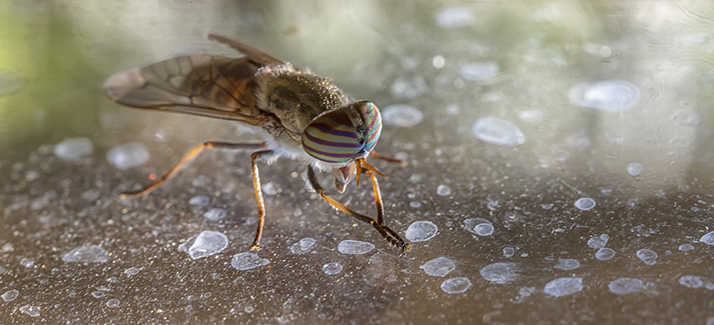DEET (N,N-diethyl-meta-toluamide or diethyltoluamide) is the world’s most widely used active ingredient in insect repellents available on the market.
Repellents work by blocking receptors so insects and biting bugs can’t find or smell you.
For many of us whom seem to attract the local insects to munch on us and prone to bites it has been a life saver. Recently reading about potential neurotoxicity and the risk to the nervous system and even worse seizures in children so made me want to find out more.
Insect repellents can contain 50% DEET
Safety of Using DEET
There has been a number of studies about the safety of using DEET
One research in cardiovascular toxicity concluded
The next research concluded that DEET may prevent the natural breakdown of acetylcholine, a chemical present in the nervous system that triggers muscle movement and activity.
One older research paper connected DEET to seizures or brain toxicity in children.
I could not find any research on mixing DEET with sunscreen or other insecticides where there has been some theoretical concerns about health issues.
Not Just Annoying but spreading disease
Insects and bugs can be annoying but more important thing to remember the bites are itchy and irritating, but in many parts of the World they can carry serious diseases, like Malaria, West Nile, Dengue Fever and Zika.
Insect repellents work by making you look far less attractive to the insect, so they’re less likely to bite you.
Personally I think if I lived in a place where insects carried these sort of diseases I would not be so worried about the chemical compared to the diseases they carry. Because however unsettling it can be applying a chemical to your skin, it is far better than the alternative -being bitten by bugs which could potentially be carrying a dangerous disease.
Natural Insect Repellents
If you don’t live in a part of the World where these insects can spread dangerous diseases and are looking for a more natural way to repel those annoying bugs . There are a number of Natural Insect repellants:
- Citronella
- Lemon eucalyptus oil
- Tea tree oil
- Thyme oil
- Cinnamon oil
- Catnip oil
- Neem oil
- Lavender Oil
- Clove Oil
- Cedarwood Oil
- Peppermint Oil
- Rosemary Oil
WARNING: Essential Oils directly on the skin can cause irritation.
WARNING: As an asthmatic I have found some essential oils can cause wheezing.
WARNING: Remember essential oils must be used carefully and often require some sort of carrier oil. Many mix the oil with witch hazel as it is great at reducing irritation, inflammation and soothes the burning the bite causes. Other carriers which people use apple cider vinegar, olive oil, castor oil, jojoba oil and neem oil which has natural insecticidal compounds.
Garlic and Lemon Juice also offer a great way to repel insects.
NOTE: With these essential oils there is no research I can find to show how long they may work for 15mins, 1 hour it is not clear so be aware.
DEET Research
There have been a number of studies and research done on DEET which I have listed below:
Is DEET a dangerous neurotoxicant?
Neurotoxicity and Mode of Action of N, N-Diethyl-Meta-Toluamide (DEET)
Neurological effects associated with use of the insect repellent N,N-diethyl-m-toluamide (DEET)
Popular Insect Repellent Deet Is Neurotoxic
Unusual modes of action of the repellent DEET in insects highlight some human side effects
DEET-based insect repellents: safety implications for children and pregnant and lactating women
Insect repellent (N,N-diethyl-m-toluamide) cardiovascular toxicity in an adult
Bug off! Severe toxicity following inhalational exposure to N, N-diethyl-meta-toluamide (DEET)
Seizure following brief exposure to the insect repellent N,N-diethyl-m-toluamide



